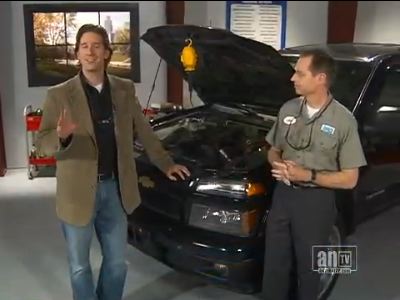We all have joints in our own skeletal system, but did you know your vehicle has some joints of its own? One of the most important is called a ball joint.
One of the interesting things is that it’s somewhat similar to the ball and socket joints we have in our hips and shoulders. A ball joint allows two parts it joins together to move in more than one direction at the same time.
Think about your wheels. They have to move up and down when there are bumps in the road but in sideways directions when you are making a turn. As you can see, the ball joints are important for your steering and handling to work correctly.
Since ball joints do so much, they can wear out and become loose. When the ball wears down or the socket gets worn, there can be too much play in them. It can get so bad that the ball can come out of the socket and your wheel can fall off, a dangerous situation. Ball joints can also seize up. Some of them are sealed and never require maintenance; others require periodic lubrication.
Here are some signs that your ball joints are going bad:
- Your vehicle pulls to one side
- You can hear a clunking noise coming from a wheel area
- Your tires are wearing unevenly, especially on the inside
The earlier a failing ball joint is discovered, the better. The best way is to have regular inspections by a technician. Your service facility will periodically check ball joints at intervals recommended by the manufacturer. The cost to replace them can vary widely depending on whether you have a vehicle with a 2-ball or 4-ball configuration. Also, sometimes just the joints can be replaced, but other times they are part of a larger control arm assembly that has to have all the parts replaced at the same time.
Your vehicle’s proper steering, handling and tire wear all contribute to a better, safer driving experience. Make sure your ball joints are up to the job.
Autotronics of St. Peter
111 Jefferson Avenue
St. Peter, MN 56082
507.934.9290
http://autotronicsstpeter.com
